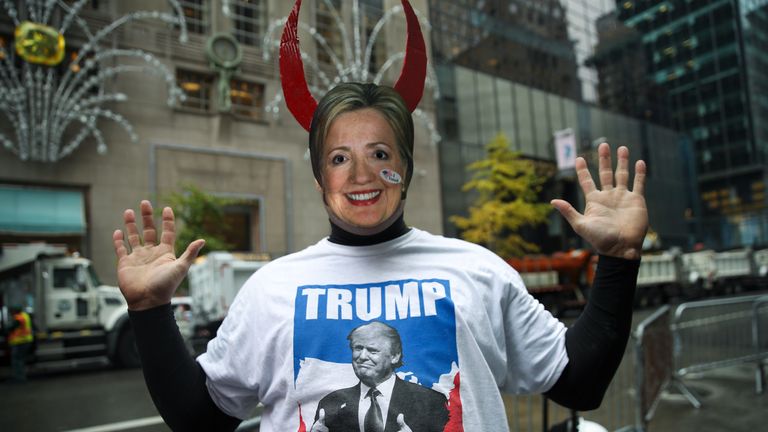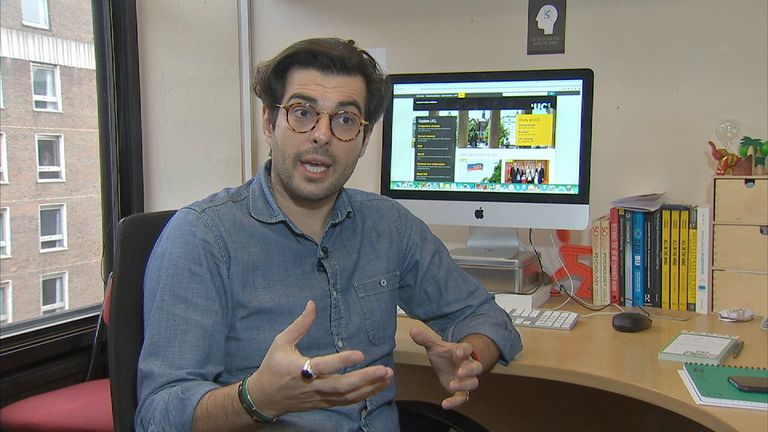Social media 'echo chamber' causing political tunnel vision, study finds
Researchers find supporters of the SNP and UKIP are the least likely to engage with people holding different political beliefs.
Monday 6 February 2017 06:49, UK
Research appears to confirm the existence of an "echo chamber" effect in UK politics, in which social media users are more likely to engage with people and media sources that share their political beliefs.
The study from Demos, a cross-party think tank, found that the "echo chamber" effect was strongest among those furthest from the political mainstream.
Researchers analysed the Twitter use of 2,000 people who openly support the Conservatives, Labour, UKIP or the SNP.
The study found that supporters of the SNP and UKIP were much less likely to engage with people holding different beliefs, or to tweet material from outlets with opposing editorial stances.
Conservative and Labour supporters were more likely to engage with users outside their group.
Alex Krasodomski-Jones, who carried out the study, told Sky News: "The existence of echo chambers and the idea that we are increasingly seeing things that we agree with, things that we like, things that we might buy, challenges some of the fundamental principles democracy thrives on.
"We have to be able to compromise, we have to able to read and accept and understand opposing views. We even need a shared concept of what is true.
"And that again is threatened by the echo chamber."
Previous studies have confirmed the "echo chamber" effect on Facebook, measuring how people fall into polarised tribes based on the information they consume and share.
Dimitrios Tsivrikos, a consumer and business psychologist at University College London, told Sky News that social media platforms "bear great responsibility" for the effect.
He said: "They are using only these algorithms to feed us with stories that are completely tailored to us.
"That doesn't allow us to explore diversity to explore another opinion.
"That makes us develop a very limited tunnel vision of reality, of products, of ideology, of political stances.
"However, on the other side it's up to the individual to actively seek alternative ways of informing themselves."






